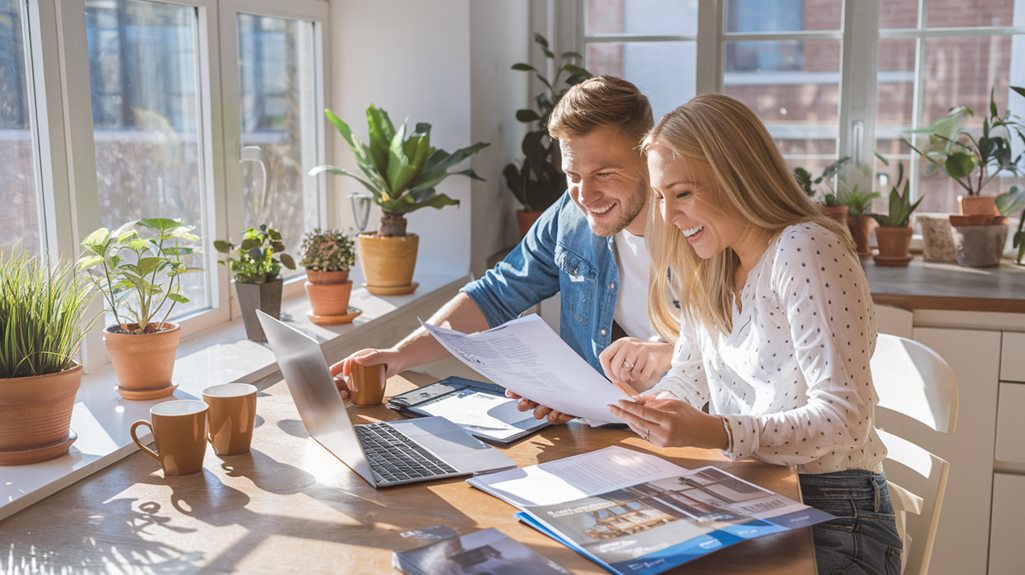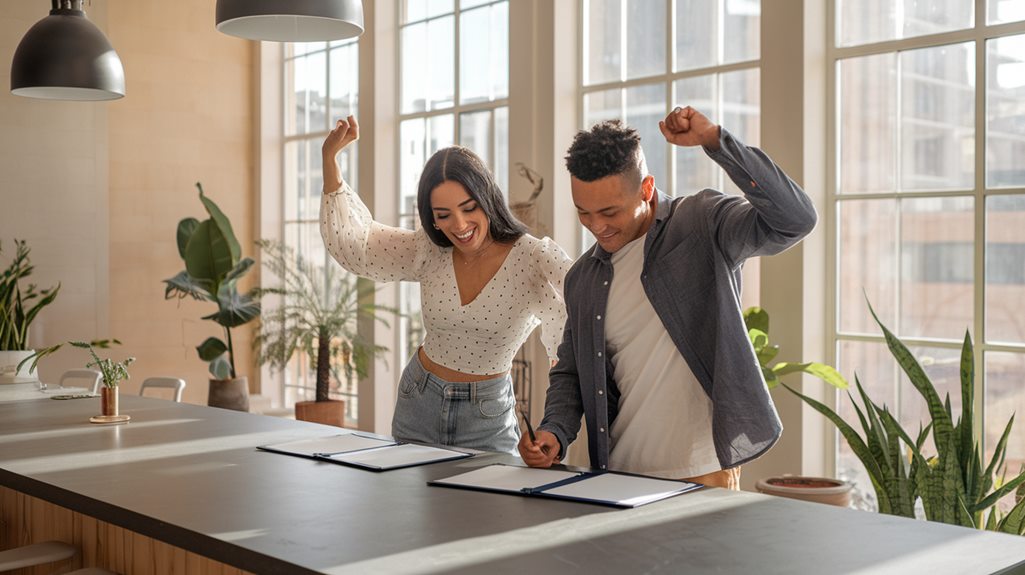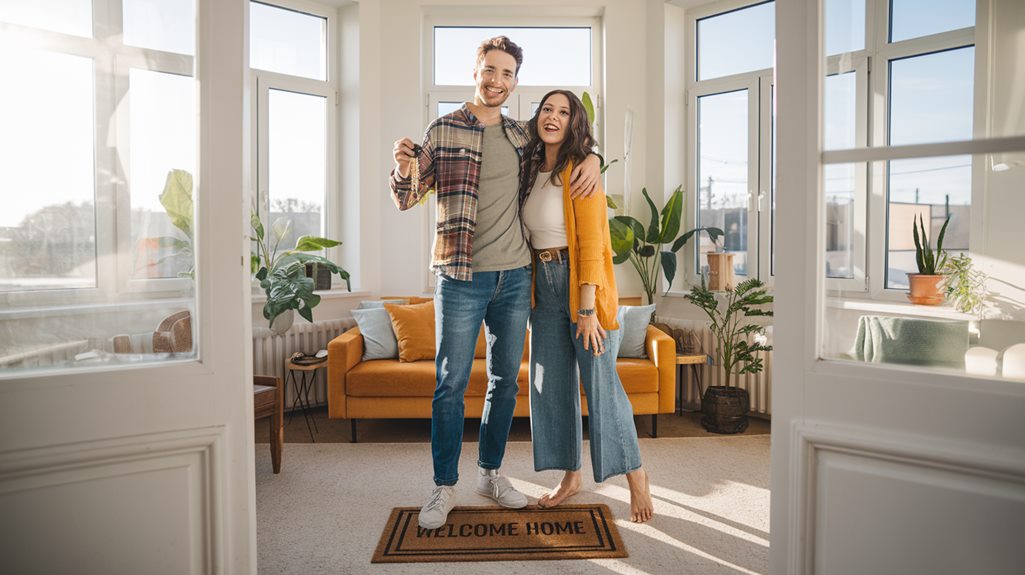Buying your first home is a big and exciting step! To make sure you do it right, follow these important tips.
First, look at your money and make sure you are ready. This will help you get a mortgage approval. Next, make a budget. Think about how much money you need for a down payment and how much you will spend each month.
Then, check out different neighborhoods to find where you want to live. It's also a good idea to find a real estate agent. They can help you understand the market and find the best home.
When you are ready to make an offer, look at how the market is doing and be ready to talk about the price.
Don't forget to have the home inspected to make sure everything is okay. Learn about closing costs too, which are the fees you pay when you buy a home.
Lastly, get ready for the final steps of buying your home with a closing checklist. If you follow these tips, buying your first home will be a smooth and happy experience!
Ready to start building equity in your own Michigan home? Get your personalized home loan quote today.
Assess Your Financial Situation

Before you start looking for a home, it's really important to check how you're doing with your money. First, take a look at any debts you might have. Paying off what you owe can help you feel better about your money and make your credit score go up.
A good credit score is important because it shows banks that you can be trusted to pay back a loan. This can help you get better deals when you want to borrow money to buy a house.
Remember, this isn't just about numbers. It's also about feeling good about your future and making smart choices with your money.
Michigan residents, unlock the door to your new home. Request your home loan quote from Treeside Financial today.
Determine Your Budget
To figure out your budget, start by adding up your monthly costs. This will help you see what you can afford.
Think about how much money you can put down when buying a home. This choice will change how much you pay each month.
Calculate Monthly Expenses
Knowing your monthly expenses is really important when you're buying your first home. Start by writing down all the bills you expect, like electricity and water.
Don't forget about extra costs, like HOA fees or surprise repairs. Make sure to set aside some money for fixing things and to pay property taxes. It's also a good idea to have some savings for emergencies, so you won't worry if something goes wrong.
Think about how much you'll pay for insurance, too. This can change depending on where you live and what kind of home you buy. If you need to, change some of your spending habits to match your new life as a homeowner.
Also, try to think ahead about future costs, like if you want to fix up your home or if your family might grow.
Assess Down Payment Options
Buying your first home can be exciting, but figuring out how much money to put down can be tricky. Start by looking for help with down payments. There are many programs from the government that can assist you.
Next, work on making your credit score better. A good score can help you get better loans with lower interest rates.
Saving money is important too! Try to set aside a little bit each month to build your down payment.
Think about ways to grow your savings faster, like smart investments. Remember, it's not just about saving a lot of money, but also about using your money wisely.
Secure Mortgage Pre-Approval

Getting a mortgage pre-approval is an important step when you want to buy a home.
First, you need to check your money situation. Make sure your credit score is good. This score helps lenders see if you can pay back a loan.
Also, look at your debt-to-income ratio. It shows how much money you owe compared to how much money you make.
Next, compare interest rates from different lenders. This helps you find the best price. A better deal can save you money later!
Verify Financial Stability
Before you start looking for a home, it's really important to check if your money is in good shape. One way to do this is by getting a mortgage pre-approval.
First, take a look at your credit score. A good score helps you get a loan. Next, make a savings plan that fits your goals. It's also important to manage your debts well.
Think about how steady your job is so lenders know you can pay the mortgage. Having an emergency fund is a smart idea. It helps you handle surprise costs.
Keep track of your spending to understand where your money goes. This gives you control over your finances. Lastly, think about ways to invest that can help you build wealth over time.
If you focus on these things, you'll feel more confident and ready for your home-buying adventure.
Compare Interest Rates
When you're ready to buy a home, it can feel a bit scary. But looking at interest rates is super important to get the best mortgage. Knowing about interest rates and whether to pick a fixed rate or an adjustable rate will help you make smart choices.
This isn't just about money; it's about finding a home that's really yours. Here's how to do it:
- Look at interest rate trends to see what might happen in the future.
- Check different lenders to find good rates and deals.
- Learn about fixed and adjustable rates to see which one is best for you.
- Get pre-approved for a mortgage to show you're serious about buying.
- Ask for advice from experts to make sure you're making a good choice.
These steps will help you find a mortgage that fits your dreams.
Research Neighborhoods
When you start looking for a new home, one of the most important things to do is learn about the neighborhoods. First, think about what you like. Are there parks to play in or stores to shop at?
Next, check if the area is safe. You can look at crime rates and see how friendly the neighbors are. If you have kids or want them someday, look at the schools nearby. Good schools are important!
Also, think about how you'll get around. Is there public transportation to help you get to work or school?
Look into any new buildings or plans for the area. These can change how much homes are worth.
Finally, see who lives there. Understanding the people in the neighborhood can help you know if it will be a good place for you.
Hire a Real Estate Agent

When you're ready to buy your first home, getting a real estate agent is really helpful.
They know a lot about the housing market and can guide you through the tricky parts.
With their help, you can avoid mistakes and make smart choices.
This can save you both time and money!
Benefits of Professional Guidance
Buying a home for the first time can feel scary. That's why it's smart to get help from a real estate agent. They know a lot about houses and can help you through the whole process.
Here's how they can make things easier for you:
- Helpful knowledge: They can tell you which neighborhoods are nice and how much homes usually cost.
- Market updates: They keep you up to date on what's happening in the housing market.
- Strong negotiators: They can help you get the best price for your new home.
- Connections: They know many people who can help, like inspectors and banks.
- Paperwork support: They can assist you with all the tricky forms you need to fill out.
With their help, you can find the home of your dreams and feel good about it!
Navigating Market Complexities
Buying a home can feel very tricky, especially if it's your first time. It's okay to feel a little lost with all the rules and options.
That's why getting a real estate agent is a great idea! These experts know a lot about the market. They can help you understand what's happening and find the best deals.
When you work with an agent, you have a friend by your side who wants to help you succeed. This makes buying a home easier and more comfortable.
Plus, you get to meet other helpful people along the way. Your journey to owning a home can be smart and fun!
Attend Open Houses
Buying your first home can feel a bit scary, but going to open houses is a great way to help you. It lets you look at homes and see the neighborhoods. You can feel what it might be like to live there.
Here are some tips to help you enjoy your open house visits:
- Dress nicely so people see you care.
- Write down things you like or remember about each home.
- Ask the agent questions about the house and the area.
- Be respectful of the people who live there now.
- Talk to other visitors to hear their thoughts.
Using these tips will help you feel more at ease and excited about finding your new home.
Make an Offer

After looking at different open houses and picking your favorites, it's time to make an offer.
First, think about the market. If many people want the same house, you might need to offer more money than the asking price or add special terms to your offer.
But if there are lots of houses available, you can probably ask for a lower price.
Work with your real estate agent to figure out how much the house is worth and choose an offer that fits your budget.
Remember, making an offer isn't just about money; it's about finding a place where you can feel happy and at home.
Trust what you feel and make your offer special!
Conduct Home Inspections
Before you buy your dream home, it's very important to check it carefully. A home inspection helps you find out if there are any problems. This way, you can feel safe and happy in your new neighborhood.
You can use a simple checklist to help you look for common issues. Remember, a professional inspector can see things you might miss, but knowing what to check is really important.
Here are some things to look for:
- Roof damage: Look for missing shingles or leaks.
- Plumbing: Check for leaks and see if the water flows well.
- Electrical systems: Make sure the wiring is safe and all the outlets work.
- Foundation: Look for cracks or signs that the house is settling.
- HVAC systems: Make sure the heating and cooling systems work.
These tips will help you make a smart choice and ensure you're making a good investment.
Understand Closing Costs

After a careful home inspection, it's time to learn about closing costs.
These costs are an important part of buying a home, and sometimes they can be easy to forget. Closing costs aren't just about your down payment. They also include things like loan fees, appraisal costs, title insurance, and escrow fees.
Knowing about these costs helps you be ready and plan your budget. When you understand closing costs, you become a smart buyer.
It feels good to know what to expect, and it helps you feel more at home in your new community. Don't skip this step if you want to make your dream of owning a home come true!
Finalize the Purchase Process
Finishing the purchase process is a big step towards getting your new home!
It's exciting, but there are important things to check so everything goes smoothly.
First, do a final walkthrough to make sure the house looks the way you agreed on.
Then, make a closing checklist to keep track of everything you need to do.
Here are some simple tips to help you feel ready:
- Check that all repairs in the contract are done.
- Test the appliances and lights to see if they work.
- Look over all the closing papers to make sure they're correct.
- Make sure the title is clear and all set for you.
- Don't forget to get homeowner's insurance.
You've got this!







